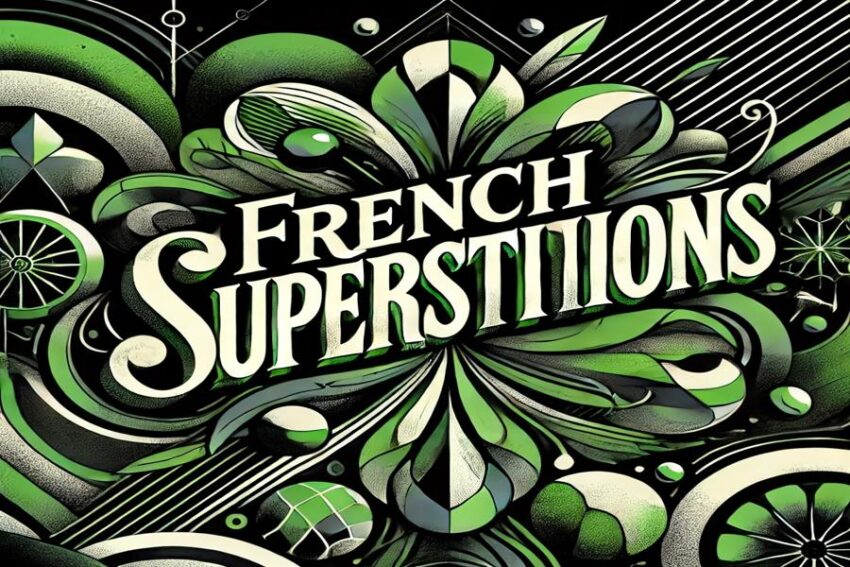Table of Contents
13 Fascinating French Superstitions: A Peek into France’s Mysterious Beliefs
France is celebrated for its art, history, and culinary delights, but beneath the surface of its modern culture lies a rich tapestry of superstitions that have endured for generations. These unique beliefs, deeply rooted in folklore and tradition, reveal a side of France that is both mysterious and intriguing. Passed down through the ages, these superstitions continue to influence daily life in subtle yet fascinating ways. From lucky rituals to eerie omens, here are 13 captivating French superstitions that offer a glimpse into the country’s mystical and often unexpected cultural heritage.
1. The Fear of Friday the 13th
like in many other countries, Friday the 13th is considered an unlucky day. This superstition is so strong that some people avoid traveling, making major decisions, or even leaving the house on this day. The French even have a specific term for the fear of Friday the 13th: “triscaidecaphobie.” Interestingly, the French National Lottery often sees a spike in ticket sales on this day, as others believe it to be a day of extreme luck.
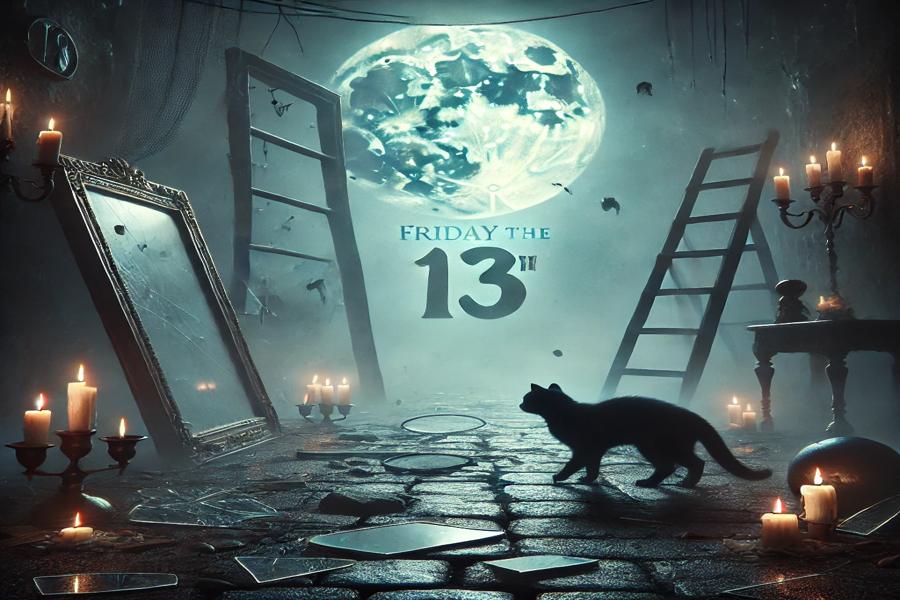
2. Avoiding Bread Upside Down
In French culture, placing a loaf of bread upside down on the table is considered very bad luck. This superstition dates back to medieval times when a baker would reserve an upside-down loaf for the town executioner, a person no one wanted to associate with. Even today, many French people will turn the bread right side up if they notice it’s been placed the wrong way.
3. Knocking on Wood (Touche du Bois)
The French share the common superstition of “knocking on wood” to ward off bad luck. Known as “toucher du bois” in French, this practice is believed to come from ancient pagan traditions where trees were considered sacred. The belief is that knocking on wood will prevent a jinx and protect against misfortune.
4. Seeing a Spider in the Evening Brings Wealth
In France, it’s considered good luck to see a spider in the evening. This superstition contrasts with the more common fear of spiders seen in many other cultures. The French believe that a spider in the evening (“araignée du soir”) brings hope and money, so finding one in your home after dark is thought to be a positive omen.
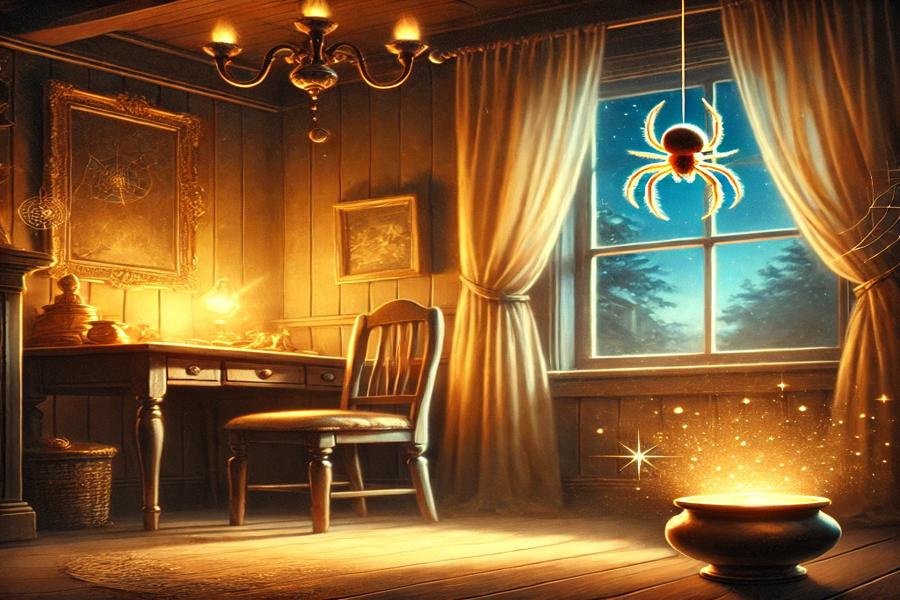
5. Itchy Hands: Money Incoming or Leaving?
The French have a superstition that if your left-hand itches, it means you’re about to receive money, while an itchy right hand means you’re going to lose it. This belief is widespread across France and is one of the most common money-related superstitions in the country.
6. The Power of the Black Cat
Black cats are often associated with bad luck in various cultures, and France is no exception. However, in some regions of France, particularly in Normandy, a black cat crossing your path is considered a good omen if it’s heading towards you. But if the cat walks away, it’s believed to carry your luck with it.
7. Walking Under a Ladder
In France, walking under a ladder is seen as bad luck, similar to the belief in other cultures. This superstition is believed to have originated from the idea that a ladder leaning against a wall forms a triangle, symbolizing the Holy Trinity. Walking through this triangle is seen as disrespectful, inviting misfortune.
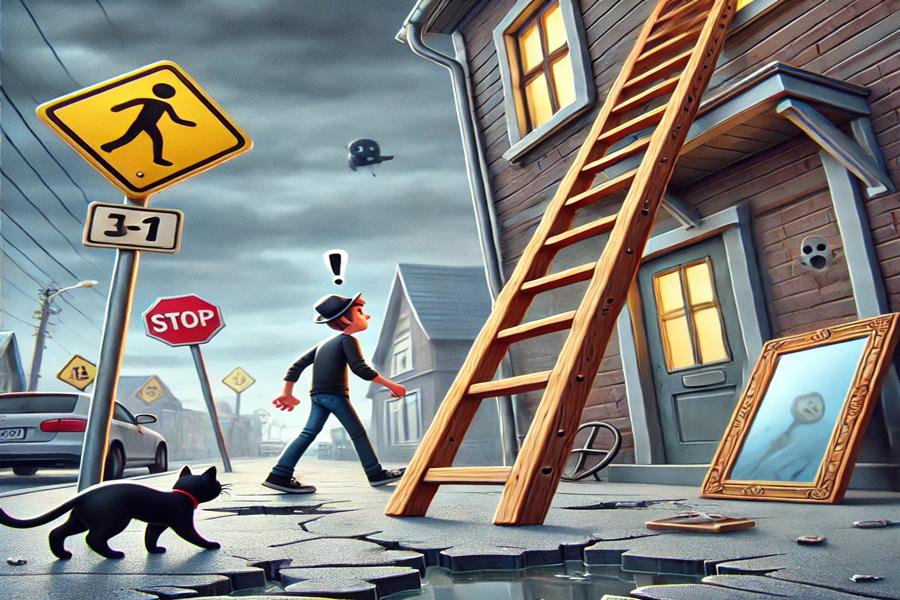
8. Stepping in Dog Poop: Lucky or Not?
Stepping in dog poop might seem universally unlucky, but in France, it’s a bit more nuanced. If you step in dog poop with your left foot, it’s considered good luck, while stepping in it with your right foot is seen as bad luck. This quirky superstition is a reminder of the strange ways in which luck is interpreted differently across cultures.
9. Spilling Salt: A Sign of Trouble
Spilling salt in France is considered bad luck, and to counteract the misfortune, you should immediately throw a pinch of the spilled salt over your left shoulder. This act is believed to blind the devil or evil spirits lurking behind you, preventing them from causing harm.
10. The Superstition of the Umbrella Indoors
Opening an umbrella indoors is seen as bad luck in France, much like in many other cultures. The superstition suggests that doing so will bring misfortune, possibly because it’s seen as a challenge to the protective spirits or because it mimics the idea of casting a shadow over oneself.
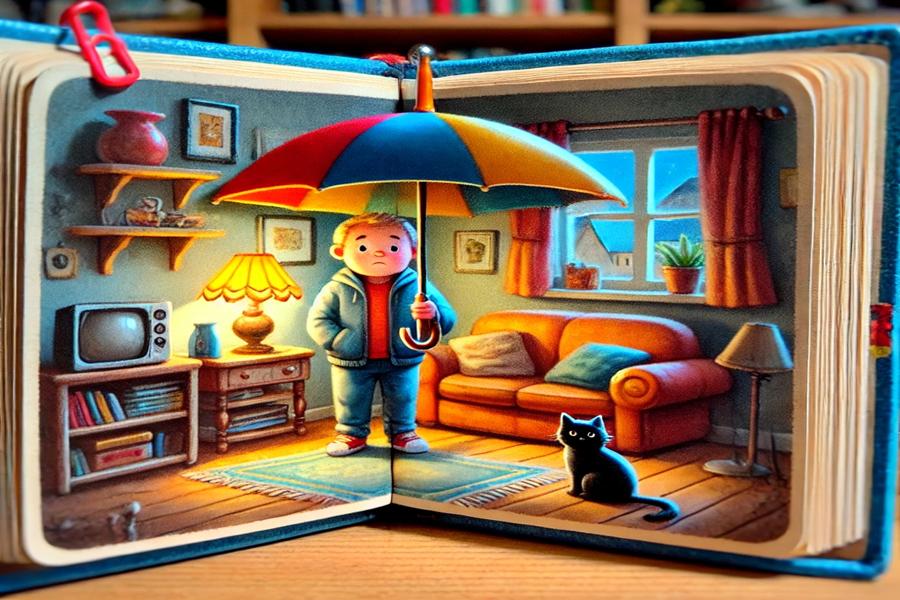
11. Saying “Merde” for Good Luck
In French dance and theatre, saying “merde” (which translates to “shit”) before a performance is considered to bring good luck. This superstition dates back to when horse-drawn carriages would bring audiences to the theater. The more “merde” in front of the theater, the more successful the show, as it meant a large audience had arrived.
12. The New Year’s Day Superstition
In France, it’s believed that what happens on New Year’s Day sets the tone for the rest of the year. Therefore, the French are careful to pay off debts, avoid arguments, and ensure that their homes are clean and their fridges full. This superstition is taken seriously, as many believe it can influence their fortune for the entire year.
13. Crossing Cutlery on the Table
Crossing knives and forks on a table in France is considered bad luck. This superstition is likely linked to religious symbolism, with crossed cutlery resembling a crucifix, which is considered inappropriate and potentially unlucky in a casual dining setting.
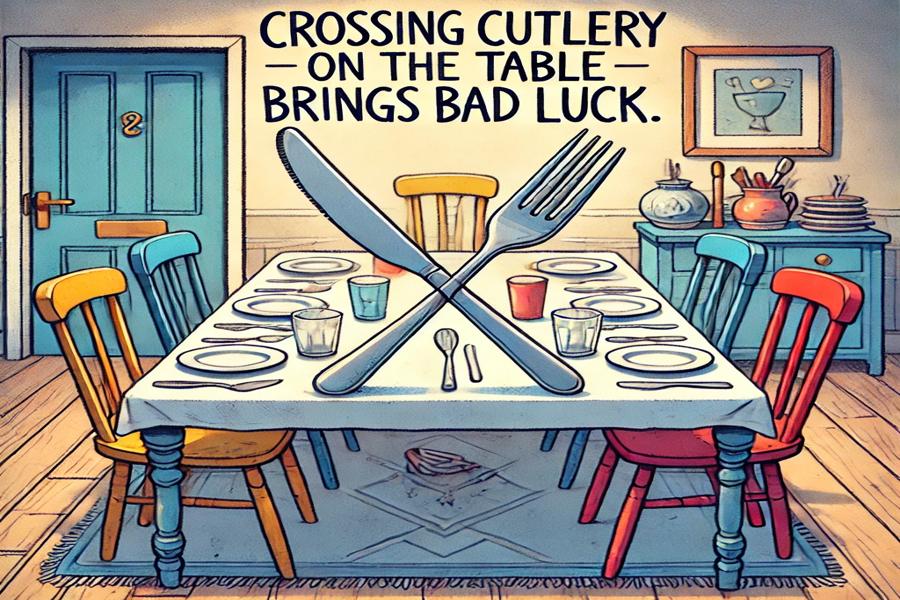
Conclusion
French superstitions are an intriguing mix of history, religion, and local folklore, reflecting the deep cultural beliefs that continue to influence everyday life in France. From the fear of Friday the 13th to the careful placement of bread, these superstitions reveal a side of French culture that is as mysterious as it is fascinating. Exploring these beliefs provides a unique glimpse into how the French navigate the unseen forces they believe can shape their lives, adding a layer of enchantment to their already rich cultural heritage.
